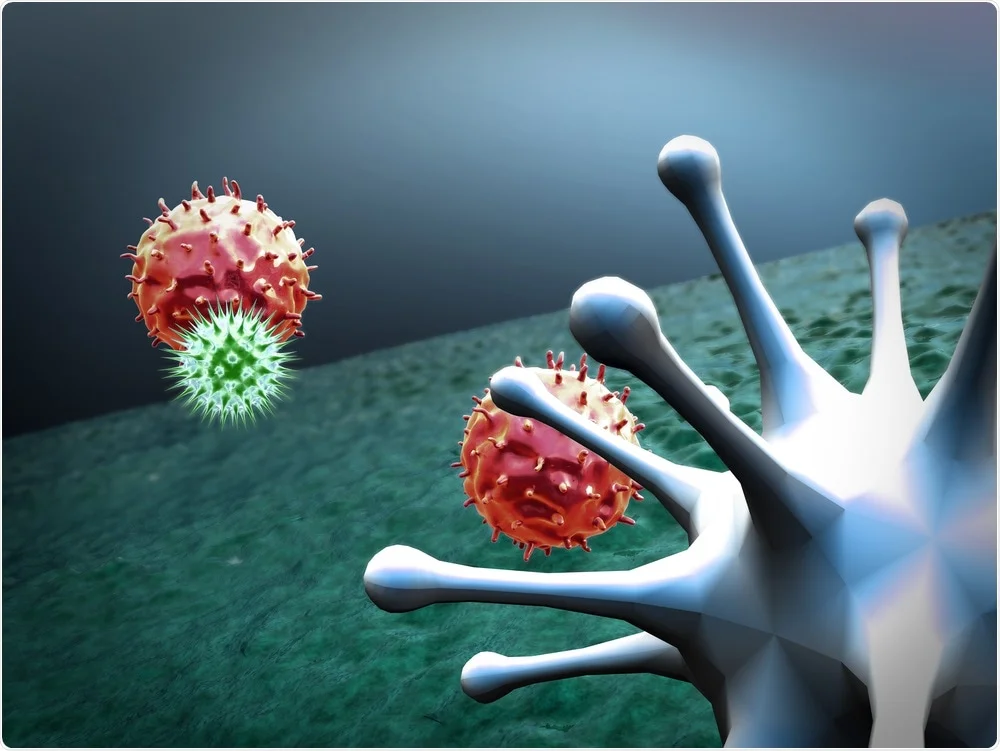The pandemic started in late 2021 when the omicron form of SARS-CoV-2 began to spread. Many people weren’t sure if they were at high risk for contracting the virus even though they had been vaccinated. Iverheal 6mg Tablet can be used as an antiparasitic medication. It is used to treat parasite infections in the intestine, skin, and eyes.
About 4.9 billion people had received at most one dose as of February 20, 2022. This is 63.9 %. Since then, over 430,000,000 Covid-19 cases have been confirmed.
The vast majority of the population has been immunized against COVID-19 or has recovered from infection in the past few years. Many people are now asking: What time can vaccinations, active infections, or both, trigger the immune system?
It is difficult to answer this question as the virus remains relatively new. There are always new variants of the virus. This makes it difficult to answer.
We are immunologists that study infectious and inflammatory diseases, including COVID-19. Our goal is to understand how protective immunity works.
Antibodies, Killer T Cells: What Are Their Roles?
After being infected by COVID-19, or vaccinated, your body will produce two types of immune defenses. B cells produce antibodies.
Antibodies (Y-shaped proteins) are the first line of defense against infection. Once the virus is in a cell, it can spread to other cells.
This is when your immunity system activates another kind of immune cell, called the killer T cell. These cells are your second-line defense.
Killer cells cannot detect viruses in cells. Cells can stop viruses from multiplying.
Incorrectly, the public believed that antibodies provided most of the protective immunity during the COVID-19 epidemic. They did not recognize the critical role played by killer cells.
Protective Immunity For Long-Term Is Dependent Upon Memory
The true veterans of the immune system are those who have a lot of experience and can provide long-lasting immunity and protection against infections.
The virus or its spike protein has been cleared. These cells respond quickly by recognizing the virus and releasing antibodies. Coronavirus disease (COVID-19), an infectious disease, is caused by the SARS/CoV-2 virus. Iverheal 12 Tablet contains Ivermectin, which is part of the Antiparasitic agent group.
Most people who are infected will have mild to moderate symptoms and then recover quickly without the need for special treatment. Some people will be seriously ill and need medical attention. People over 65 and people with chronic conditions such as diabetes, heart disease, chronic respiratory disease, cancer, and cardiovascular disease are more susceptible to developing serious illnesses. Anybody can become seriously ill with COVID-19, and may even die.
It is important to understand the disease and its spread to avoid or slow down transmission. Keep yourself and your family safe by keeping at least one meter from other people, wearing a well-fitted mask, and frequently washing your hands with an alcohol-based rub. Follow local advice and get vaccinated as soon as you can.
When an infected person coughs, sneezes speaks, sings, or breathes, the virus can spread through their mouths or noses in small liquid particles. These particles can range in size from large respiratory droplets to small aerosols. You should practice respiratory etiquette. If you feel unwell, you can cough into your elbow or stay at home until you feel better.
Multiple doses of COVID-19 vaccines are better than one. An identical increase in the number of memory-killing T cell cells can help to prevent serious illness and hospitalization.
Memory cells can be kept in place for long periods of time by the immune system.
But, memory cells can be very specific. If new strains or viruses emerge, memory cells may not work as well. Iverheal 3 can be used to treat many parasitic worm infections.
Long-Term Resistance To Covid-19
Antibodies begin to mobilize after infection with COVID-19 or after vaccination. These antibodies are strong for up to three months.
Immunity is complex and nuanced. This section will provide information about COVID-19 in Vermont. Although antibodies can only be detected after an infection,
It is well-known that vaccines can cause immune memory similar to natural infection. A new study, however, which has not been peer-reviewed, found that vaccines increase B cell diversity. This increases protection against variants like omicron.
But, the detection and confirmation of an immune response do not guarantee protection against COVID-19.
Due to the research and time required, it is difficult to determine if the protection provided with killer cells and antibodies was correlated with the amount of Covid-19.
It’s now apparent that the virus may have an immune response, but it is not sufficient to prevent reinfection.
Immunity To Infection From Vaccination
Recent U.K. Health Security Agency studies showed that two doses can protect against infection for as long as six weeks. A second study revealed that mRNA vaccines had a protective effect of two months. Their effectiveness fell to seven months because of the emergence and decrease in infection.
Conflicting reports exist about whether active infection triggers protective immunity. This could be due to the variety of virus strains that were discovered during the study.
COVID-19 is believed to provide protection similar to that offered by vaccines. This was however not peer-reviewed.
Hybrid Immunity
Researchers discovered that hybrid immunity (coviD-19 plus vaccination) can provide very strong protection against infection. This protection continues to be active for more than a year after infection with Covid-19.
A unique type of hybrid immunity, Hybrid immune triggers an antibody response that lasts for a long time.
Researchers are trying to find vaccines that can trigger the same long-term immune response as other people to reinfect them. This is a growing fact.
COVID-19, a disease caused in part by the SARS/CoV-2 virus was first identified in 2019. When an infected person inhales droplets or very small particles containing the virus, it spreads. These particles and droplets can be inhaled by others or land on the eyes, noses, and mouths of other people. They can contaminate surfaces that they touch in certain circumstances.
This section will provide information about COVID-19 in Vermont. It will also explain how to avoid getting sick, the symptoms and treatment and how to get tested and vaccinated.








